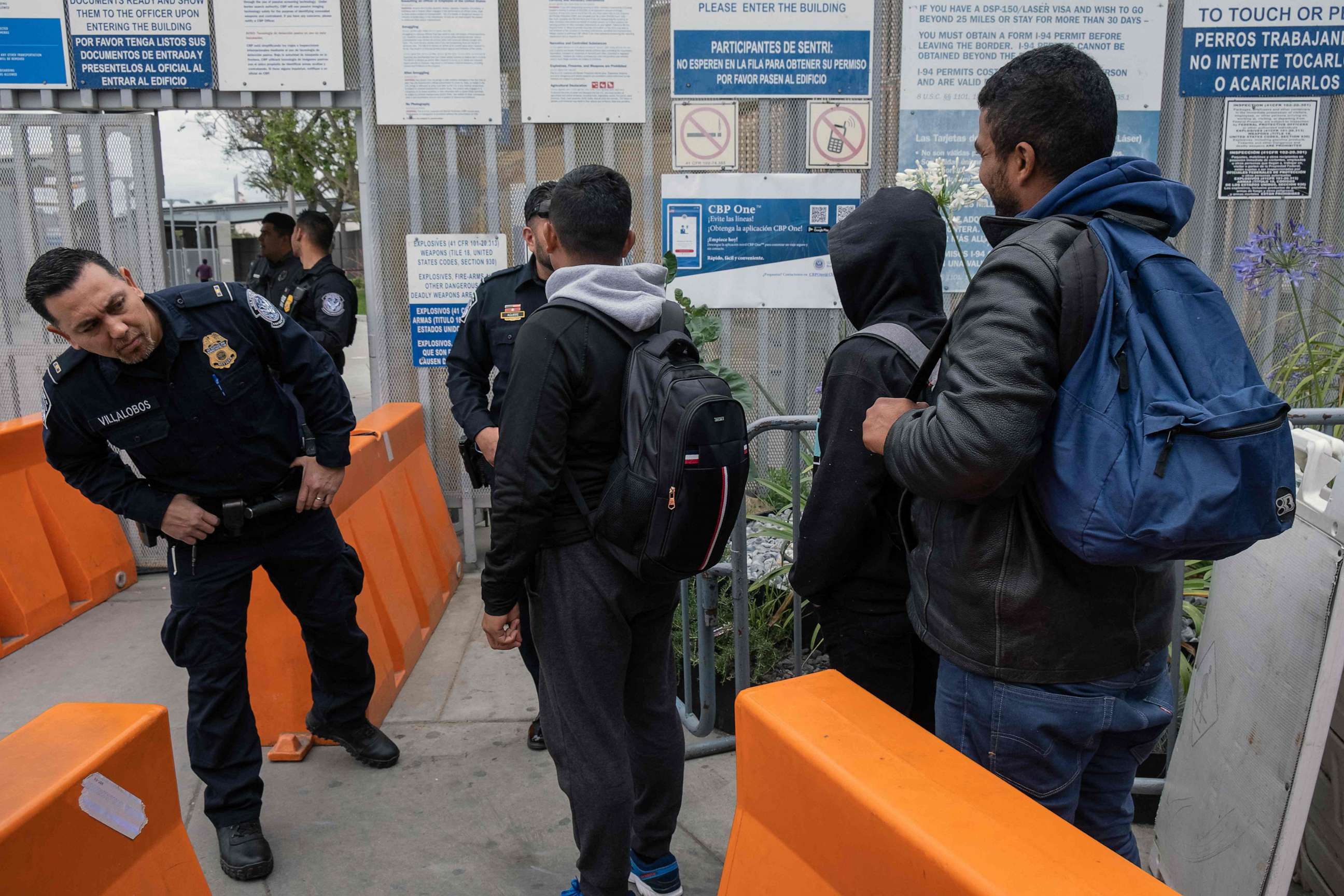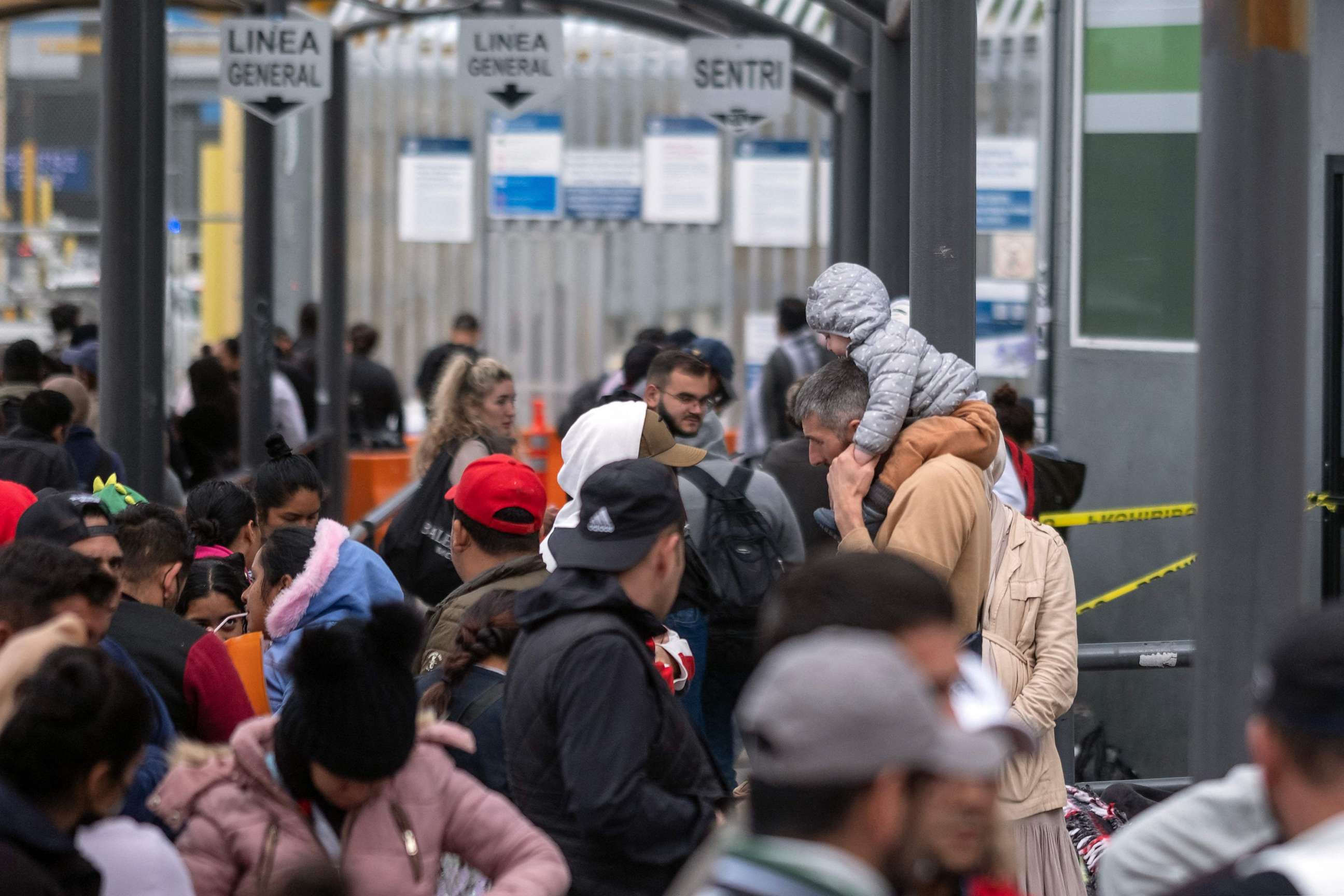Biden administration's asylum policy is sharply cutting back on successful applications: Official
A newly implemented Biden administration policy is significantly reducing the number of migrants at the southern border who can successfully seek asylum, a Department of Homeland Security official said in a recent court filing.
The policy established a higher standard for asylum eligibility and presumes, with some exceptions, that those who cross the southern border illegally are ineligible if they come from another country without first applying for legal entry there.
DHS officials say the rule is essential for managing the large number of people who might come to the U.S.
From mid-May to mid-June, the number of single adult migrants who passed an initial screening interview for asylum at the border declined from an average of 83% as recently as 2019 to 46% under the new policy, according to the court document, which was first reported by The Los Angeles Times.
The vast majority of those migrants interviewed for asylum since May 12 -- 88% -- were presumed ineligible for asylum while 3% were able to qualify for an exception to the rule and another 8% were able to show that they hadn't broke any of its requirements.

The tightened restriction was implemented immediately following the end of fast-track border expulsion protocols under Title 42 of the U.S. Code last month.
"I would attribute the lower pass rate to the higher bar set by the rule," Migration Policy Institute analyst Kathleen Bush-Joseph told ABC News.
Advocates have sharply criticized the change, likening it to policies under former President Donald Trump that sought to cut back on the number of asylum claims. The American Civil Liberties Union and other groups are trying to block the restrictions in court.
The comments from Assistant Secretary for Border and Immigration Policy Blas Nuñez-Neto were filed Friday as part of a lawsuit against the Biden administration over the asylum rule change.
The plaintiffs argue it would "effectively eliminate asylum for nearly all non-Mexican asylum seekers" and would "bar vulnerable people from asylum for reasons wholly unrelated to the strength or urgency of their need for protection under our laws."
Government officials have pushed back.

"The decline in encounters at the U.S. border … show that the application of consequences as a result of the rule's implementation is disincentivizing noncitizens from pursuing irregular migration and incentivizing them to use safe and orderly pathways," Nuñez-Neto wrote in the filing.
Some migrants will be able to challenge the rule and those who are rejected can apply for a lesser form of relief or seek to appeal the decision with an immigration judge, said Bush-Joseph with the Migration Policy Institute.
"There are thousands of people who have likely not received interviews because the administration doesn't have the capacity to do the interviews for everyone," she said.





